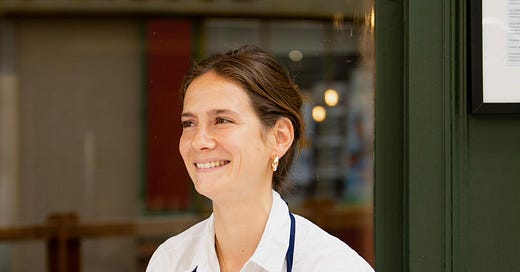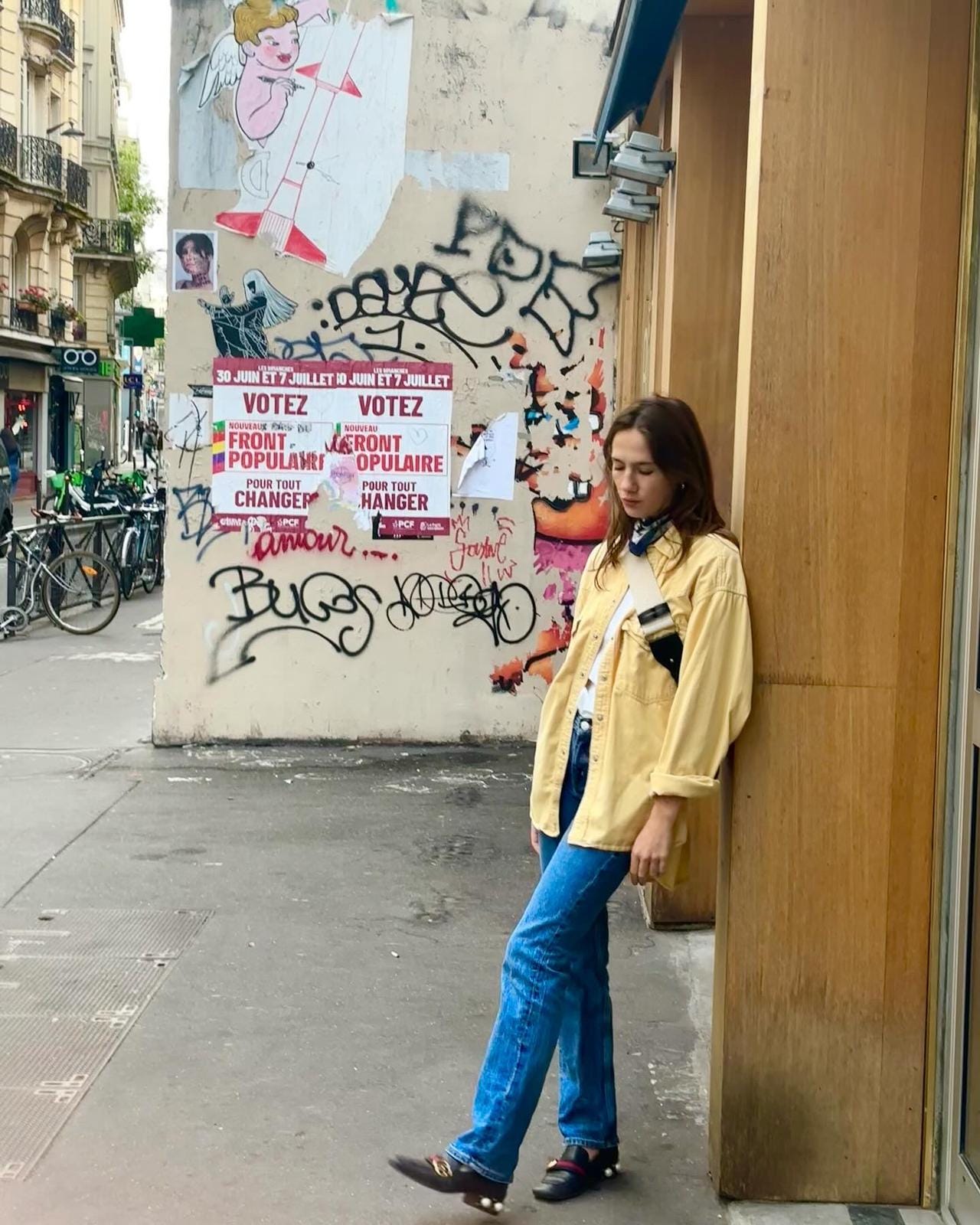Studio Gaia
Sveva Guedroitz is one of the hottest chefs on the Paris private dining circuit. With her new project, Studio Gaia, she's cooking up a storm – and putting culture on the menu, finds Will Hosie
The biggest trend in food this year has been fashion: brand events, product launches and fashion week afterparties are now the natural habitat of up-and-coming chefs. In the era of tablescapes and supper clubs, the culinary arts have fallen in love with the fashion set; the eagle-eyed, tastemaking barons of Paris, Milan and (increasingly) Copenhagen. In a moment of circularity rare for the industry, the biggest trend in fashion has been plants. Loewe’s anthurium flower dresses; Armani’s winter gardens and the rise and rise of Susan Fang; nature is abounding in the closets of the rich and trendy.
Few chefs are hotter or more fashionable than Sveva Guedroitz (@sveva_guedroitz). Based in Paris, she has cut her teeth in Michelin star restaurants and local bistros across her home country (she also has roots in Italy and Belgium). From Oustau de Baumanière in Les Baux de Provence (three Michelin stars under the patron chef Glenn Viel, who was just 39 when he received the accolade – the youngest ever) to Quinsou in Paris (one Michelin star under the patron chef Antonin Bonnet, previously of The Oak Room), via Ourea – Marseille – and Oya – Paris – she’s learnt from the best in the business. Now, she’s striking out on her own.
Launching in September with her business partner Loes Benneker, Studio Gaia is a multifaceted project rooted in Sveva’s love of seasonal vegetables. Very fashionable, I note. “It actually kind of annoys me,” she laughs of the fad for all things fresh and foraged. “It’s the kind of food I’ve been making my whole life, towards which I gravitate instinctively. To see everyone hop on that bandwagon and for it to become a movement… It makes it harder to stand out.” Among Sveva’s core memories from childhood are hours spent in her grandma’s greenhouse in the countryside near Paris. Supper clubs in bucolic settings might be all over Instagram now: but for Sveva, it’s more than just a trend. It’s an inheritance.
“The idea with Studio Gaia is threefold,” she tells Gauche: private hire; pop ups; and brand events. The goal is for these various avenues to flesh out a unique identity for the project: one that combines culinary expertise and a lesson in the art of eating well. Studio Gaia was born out of a previous project focused on olive oil pairings. It proved a fertile idea, winning the end-of-year prize at Ferrandi School of Culinary Arts and anticipating the trend for local produce and seasonality that has become all the rage. Sveva owes it to her family. “Growing up, we ate food that was incredibly simple, unfussy, often raw.” It wasn’t about sublimating an ingredient via an impressive recipe but rather the opposite: finding the beauty inherent to ingredients in their natural state.
The decision to call the project Studio Gaia was an obvious one, Sveva says. Gaia is the Greek goddess of the Earth: a name that nods to root vegetables and farm-to-table dining while also harking back to classical literature. Sveva, who earned a degree in Literature from La Sorbonne before enrolling at Ferrandi, is also a food writer and comes from a literary family. Her grandfather, Alexis Guedroitz, who was a professor of Russian Language and Literature and an interpreter who played a crucial role in meetings between Soviet and Belgian politicians during the Détente. Studio Gaia gestures to hinterlands that are at once rural, cultural and personal: ideas which Sveva captures in short and beautiful articles posted to her Instagram captions – sometimes with recipes.
“I dream of hosting a supper club in a setting that invites a dialogue between space and food,” Sveva says. For instance, her grandma’s vegetable garden or an art gallery. The idea is to transmit knowledge, and perhaps a lesson, through the food that she serves. The culinary arts remain an incredibly “didactic” field of study: a word she uses the French way, as a compliment. What lessons does she wish to transmit? “It feels like we’re going back to our roots; back to ancestral ways of feeding ourselves,” she says. “I want to show people how easy it is to eat well and to value simple recipes that make the most of locally grown vegetables at their ripest and most delicious: asparagus and elderflower in Spring, figs and tomatoes in Summer, squash and root vegetables in Autumn…”
Recent years have seen diet culture back on the rise, with a litany of new studies revealing just how far nutrition impacts our long-term health. Longevity science has made huge breakthroughs in this field and doctors like Mark Hyman and Tim Spector – who extol the virtue of whole, natural foods that are rich in protein and fibres – have become household names. Sveva’s menu taps into this, with a clean eating ethos that feels current and zeitgeisty. But as she says, this has always been her jam.
Portrait of the young chef as a fashion icon: a candid Sveva on the streets of Paris
You’d also be forgiven for thinking Studio Gaia is a veggie project. It’s not, the chef is keen to stress: although the emphasis is certainly more on the gatherer half of the hunter-gatherer spectrum. Sveva isn’t particularly keen on meat, but fish is certainly on the menu. “I’m so fond of the French marine ecosystem,” she says, “and of the possibilities it affords French cuisine. I’m constantly amazed by what we can do with algae, in particular.”
Studio Gaia is rooted in ethics and sustainability; but also in more abstract notions of “instinctive” and “feminine” cooking, Sveva notes. “I’d say my cooking is herbal, floral, aromatic, low on spice.” All Things Butter, this is not. Studio Gaia is about finding delectation in levity and freshness; rethinking the relationship between the farmer and the cook; and celebrating the role of agriculture in our wider heritage.
Studio Gaia launches in Paris in September







